|
The Palauan owl, Pyrroglaux podarginus, is a diminutive miniature of his forest cousins (the Scops Owls) from the genus Otus. Given that the Philippines possesses at least seven species within the genus Otus, it's most likely that the Palauan owl colonized from the West. It's not exactly clear when the owls first arrived in Palau, though that colonization event must've occurred long ago as the Palauan owl is not only endemic, but finds itself in the monotypic genus Pyrroglaux. The genus name comes from the Greek word pyro- meaning fire. This refers to the reddish plumage of the adult owl. Glaux is also Greek and simply means owl. The podarginus portion of the species name refers to the silver feet. 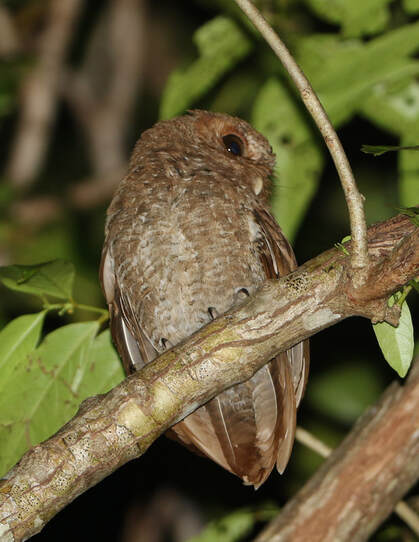 Every Palauan is familiar with the melodic call of this nocturnal forest dweller, though few residents have had the pleasure of seeing one up close. The Palauan owl ("Chesuch" in Palauan) hides deep in the forest by day, emerging at night to feast on geckos and insects. The best way to get a glimpse of this reticent raptor is to play back their call shortly after dark. These territorial little predators are intolerant of competition and will quickly respond to the intrusion. They'll perch above your head scolding the phantom intruder with load "whoops," until they realized that they've been duped. The owl will then quickly disappear back into the forest to resume its mysterious lifestyle. On rare occasions a juvenile owl will fall from their nest with no ability to reunite with their caring parents. I rescued one stranded owl while leading a camping expedition, after the little bird had been blown into the ocean during a wild storm. We washed the salt water from the owls feathers and treated him to a meal of hamburger. After regaining his strength the bird with belly full, returned to the forest sometime in the night. 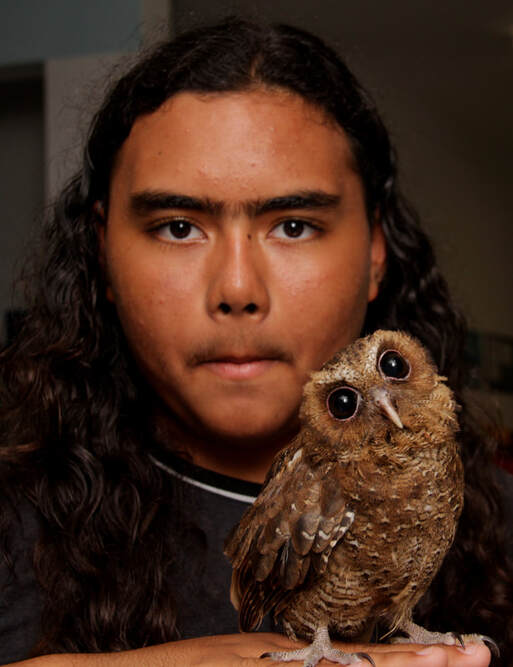 More recently an orphaned owl was brought to the caring hands of the scientists at the Coral Reef Research Foundation (https://coralreefpalau.org). In addition to studying Palau's mega-diverse marine bio-fauna, they also run a non-profit association known as PAWS (Palau Animal Welfare Society). PAWS has been instrumental in caring for dogs, cats, and stranded wild animals during their tenure in Palau. http://pawspalau.org/ My son Calvin Idek Leidich was very fortunate to attended a Robotics course at CRRF and was able to enjoy a close encounter with the little owl, appropriately named Owlaxander the Great. The precocious fledgling nibbled gently at Calvin's hands until a bond of trust was formed. Once Owlaxander understood he was safe and secure he hopped onto Calvin's hands and enjoyed a little tour of the center. Research Biologist Gerda Ucharm has been feeding Owlaxander chicken and geckos. Gerda is hoping that he'll return to the wild, but fears that he's gotten too comfortable with the domestic lifestyle. Owlaxander apparently prefers soft fluffy towels to his woody perch and turns his beak away from live prey. So much for the call of the wild! By: Ron Leidich
0 Comments
Your comment will be posted after it is approved.
Leave a Reply. |
Categories |
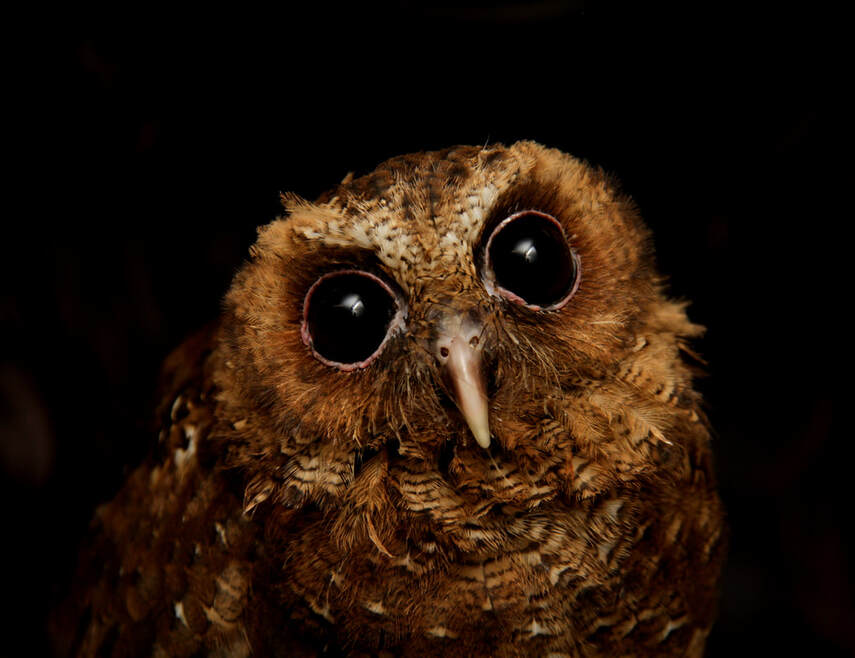
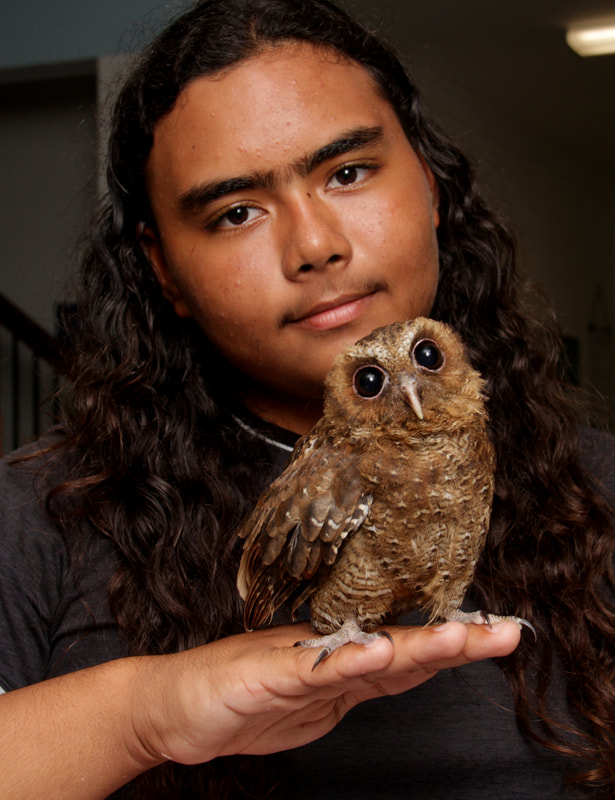
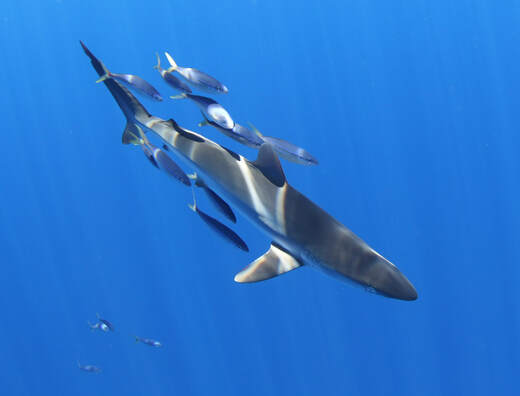
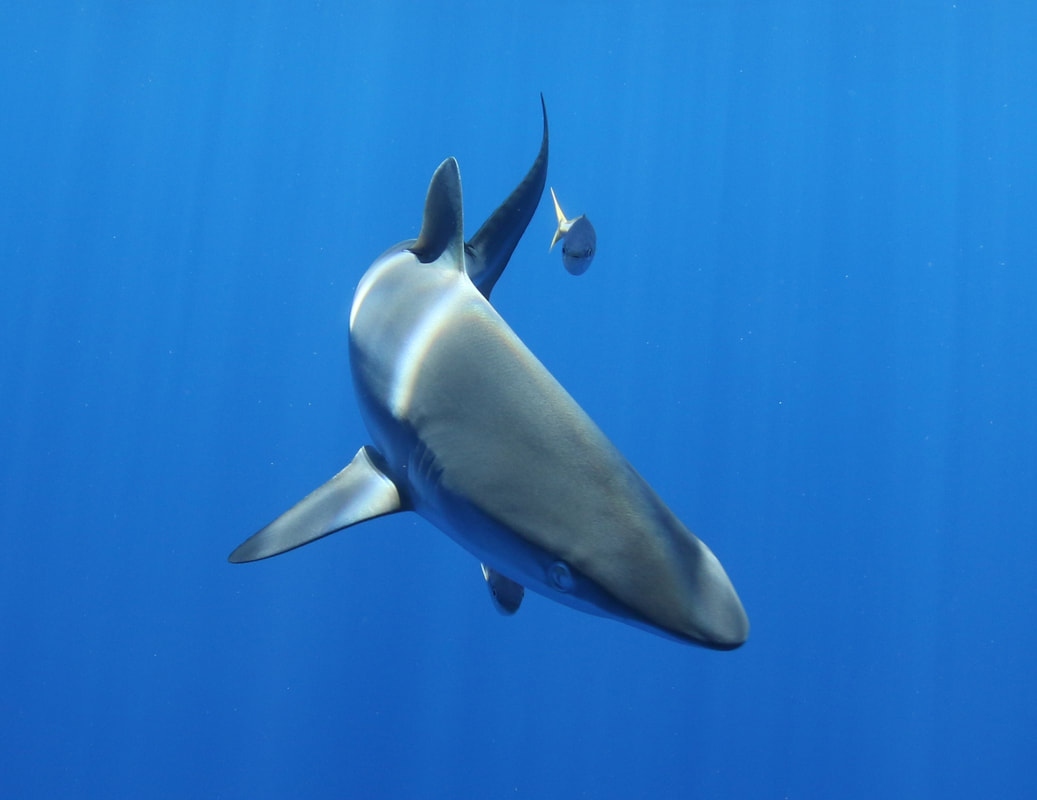
 RSS Feed
RSS Feed